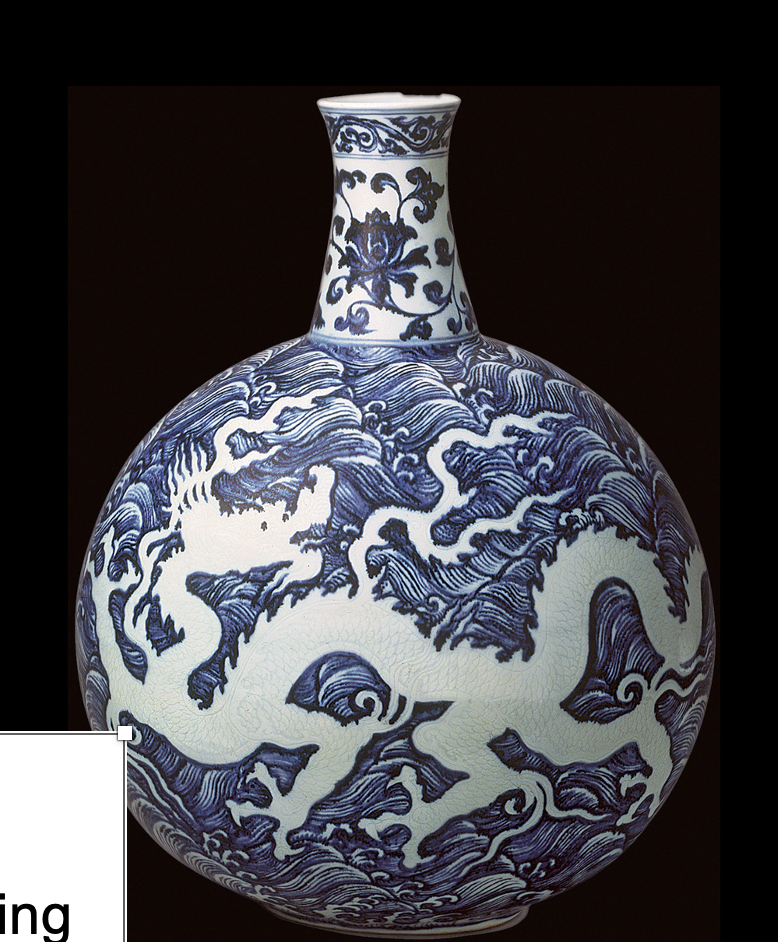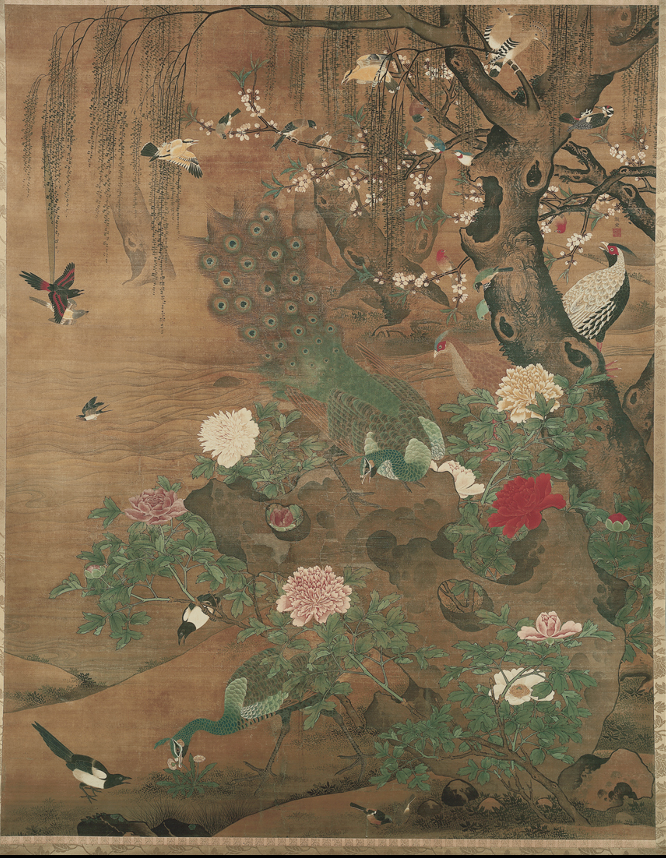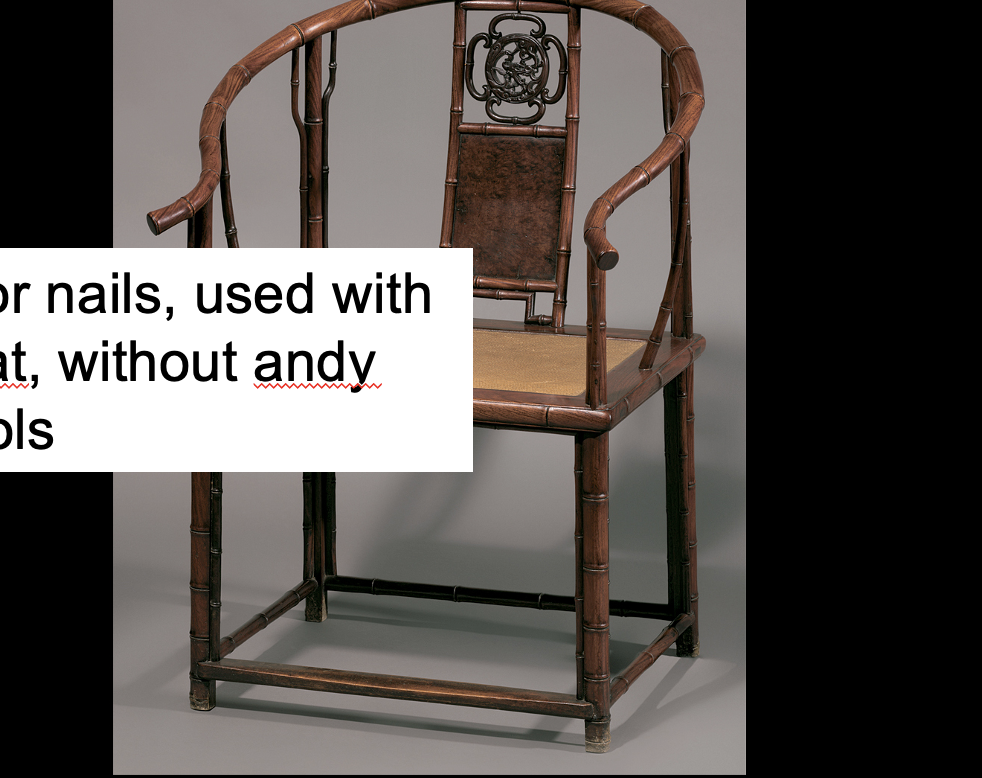Chapter 25: Chinese and Korean Art after 1279
1/6
There's no tags or description
Looks like no tags are added yet.
Name | Mastery | Learn | Test | Matching | Spaced | Call with Kai |
|---|
No analytics yet
Send a link to your students to track their progress
7 Terms
what is Liberati Painting
a style that reflected the taste of the educated class
evident during the Song dynasty
Describe Foundations of Chinese Culture
•During the Han dynasty, Confucianism was made the official state ideology.Philosophy of Zhou, an ethical system for the management of society based on establishing correct relationship among people
•Daoism also developed under the Han dynasty.view of life that seeks to harmonize the individual with the Dao/way the process of the universe
What are some format of Chinese paintings
Hand scrolls and album leaves(book pages)
the literati favoured small formats whoh could easily be shown to friends and at gatherings ex: Zhao Mengfu
FLASK
Ming dynasty, 1426-1435. Porcelain with decoration painted in underglaze cobalt blue. Collection of the Palace Museum, Beijing.


Porcelain was heavily used during the ming and tang dynasty, blue underglaze, Ming blue and white wear. Kiln are owned by the ruling class and they become world renowed kilns
Ming dynasty, became world wide famous for their percelaine ceramics. The imperial kilns in Jingdezhen in the Jiangxi Province were most renowned.
during reigns of Yongle and Xuande emperors, trade and diplomatic missions traveled to the middle east, and ming percelaine made it way to Iran and turkey where it was admired for its refined decoration and flawless.
Used for decanting wine in the Chinese imperial house were probably inspire by islamic glass vessels brought back to china with traders returning from missions
The underglaze cobalt blue decoration shows variety of ornamental motifs and representational systems that were used by the painters of Ming porcelain: body of one dragon is rendered wit fine descriptive detail against a background of delicate plant motifs where the other dragon is a bold white silhouette reserved from the densely painted waves of ocean habitat
dragons part of chinese folklore since Neolithic time. Associated with powerful and sudden manifestation of nature and superior beings. Appropriate as an imperial symbol during Han dynasty and has remained. During tang and song dynasty is represented enlightment.
Technique: Porcelain is made from kaolin a refine white clay and petuntse a variety of the mineral feldspar. When combined and fired at high temperature(1300-1400c) the 2 material fused into glass like, translucent ceramic that is stronger than it looks.
Porcelaneous stonewear fired at low temperatures was known in 7th cent in China but true porcelaine perfected during Song dynasty.
Blue pigment made with finely ground cobalt oxide and water.
Decor painted directly onto unfired porcelaine vessel then, layer of clear glaze was applied over it known as underglaze(pattern painted beneath the glaze).after firing the piece merges from kiln with clear blue design against sharp white.
Technique copied by europeans who tried to duplicate it
Yin Hong HUNDREDS OF BIRDS ADMIRING THE PEACOCKS
Ming dynasty, late 15th-early 16th century. Hanging scroll with ink and colour on silk, 7

court and professional paintings
a typical example of Ming court taste
a pupil of well known courtiers, Yin probably served in the court of Beijing
examples of the birds and flowers genre which is a popular with artist of the Song academy
The subject takes on symbolic meaning with homage of the birds to the peacocks representing the homage of court officials to the imperial state. Faithful style to song academic models but has large format and intense attention to detail which of Ming traits.
ARMCHAIR
Ming dynasty, 16th-17th century. Huanghuali wood (hardwood),

Literati influence on furniture, architecture and gardens
characteristic of Chinese furniture during the Ming period, the arm chair, is constructed without glue or nails
Pieces fit together based on the principal of the mortise and tenon joint in which a projecting element(tenon) on one piece fits snugly into a cavity(mortise) on another
Each piece of chair is carved, not bent or twisted, and the joints are crafted with great precision.
The patterns of the wood grain provide subtle interest, unconcealed by painting or other embellishment.
Like Chinese architecture the style is clear, simple, symmetrical, balanced
the effect is formal and dignified but natural and simple, virtues central to the traditional Chinese view of proper human conduct as well
What kind of painting is the Universe 5-IV-71 by Whanki Kim
Ink painting
is work seems related to East Asia’s venerable tradition of monochrome ink painting and suggest a Daoist and Buddhist feeling